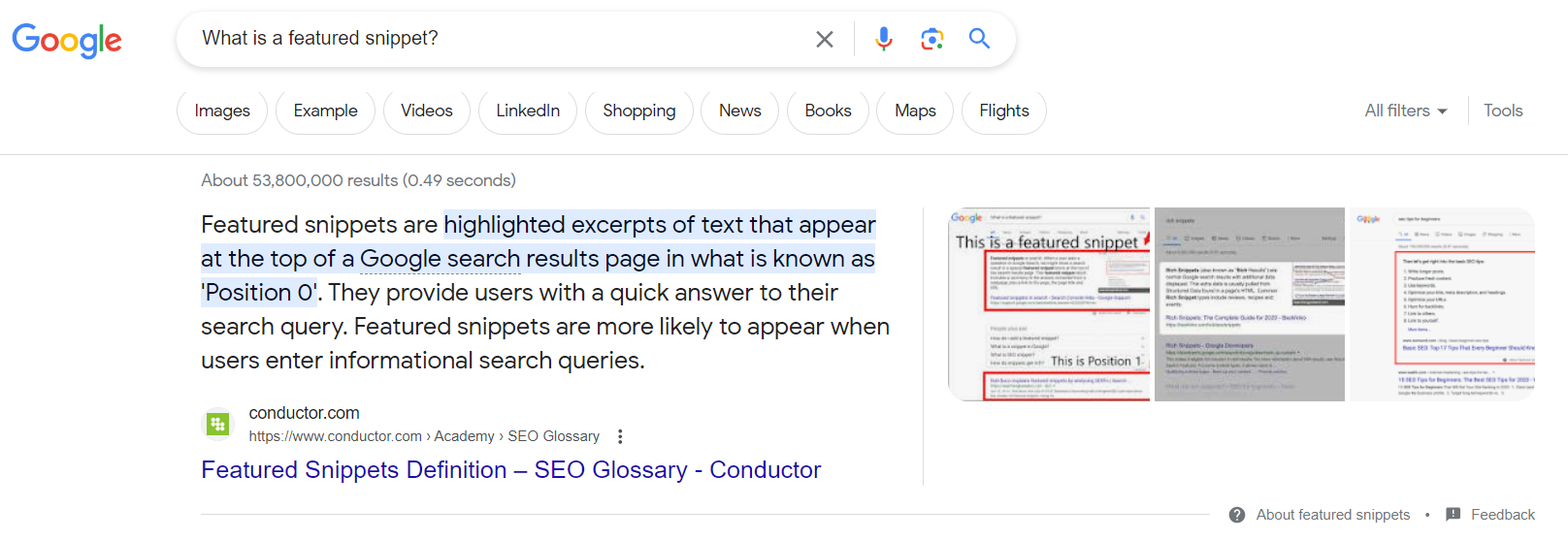2023 has been a wild year for search technology and for Google’s search algorithm in particular. For SEO Marketers, following current trends of how Google analyzes websites to produce search results is critical for the success of clients in gaining and retaining website traffic.
Google in particular is constantly upgrading and perfecting its systems to provide a better user experience for consumers in any given context. This means that they must account for commercial, informational, transactional, or other types of searches, entered by users of all ages, locations, languages, and backgrounds. Due to this complexity, Google is unable to serve the perfect result at the #1 spot every time, but their ultimate goal is to attain that benchmark in order to become the perfect search engine!
Major updates, such as those I will discuss, are one method that Google uses to perfect its search engine. However, even between major updates, teams of both human engineers and automated software programs are constantly tweaking, debugging, and researching new methods to improve the search query system, the system that serves as Google’s true product to its consumers.
For those who may be new to SEO or interested in implementing SEO solutions for their own business, here are some relevant trends from the world wide web that may give you a better understanding of the current state of search.
Core Updates
Google usually implements 2 or 3 “Core Updates” to their main search algorithm annually. These updates focus on making improvements to Google’s automated processes in which the search engine analyzes a user’s background, intent, location, and other factors to provide them results which most accurately satisfy their query. In fact, Google can even answer a question directly with a “featured snippet” of text copied from a website so you don’t even have to click on the website’s link. Even searching “featured snippet” produces a featured snippet, as you can see below:

Google’s recent update was unusual because the most recent update was only 2 months earlier in August 2023; the core update before the August update rolled out 4 months previously in May 2023. Usually, the updates are spaced out pretty evenly, so perhaps this quick turnaround means Google is going back on some of their implementations from the August update.
Helpful Content Updates
Separate from Core Updates, Google implements “Helpful Content System” (HCS) updates several times a year to complement their core update content. Usually, these updates are less concerned with the algorithmic formulation of a perfect response to a search query, but rather about how Google’s language processing tools read then assess individual pieces of content and websites.
When Google “crawls” web pages, Google asks itself questions about what’s on the page: Is the grammar and spelling correct? Is the page formatted in an organized manner? Does the content help humans, or does it simply stuff keywords into jumbled sentences? Google’s analysis of these factors creates “signals” from the website which suggest its overall usefulness (or uselessness) to readers.
The recent HCS update focused on promoting human-generated content while relegating “spammy” and unhelpful AI-generated content that has flooded the web in recent months. However, aspects of this update may be altered in the October Core Update, which finished rolling out on October 19th.
AI Advancements
Regardless of your involvement in the search or tech space, I’m sure you have heard of ChatGPT or perhaps other LLM (Large Language Model) based AI Chatbots such as YouChat or Jasper Chat. Recent breakthroughs in the space have improved the ability for AI to answer questions accurately, “create” new content, and replicate natural human speech, users have experimented and published significant amounts of AI material to websites, blogs, and all kinds of social media platforms.
As companies such as Google (creator of Bard), Microsoft (creator of Copilot), Amazon (creator of Bedrock), Meta (creator of Llama 2), and many others participate in the trendiest “arms race” in tech, the human-like qualities and capabilities of AI are certain to improve.
So, what does this mean for SEO Companies?
For SEO content creators, writing and producing content will likely become possible at a greater scale than before, as automated processes will cut down the time required to brainstorm or research factual data. However, AI is still very imperfect at sourcing information, so creators must be careful to proofread and verify content before publication.
On that same note, readers must be very wary of the source of information they access from Google or the web in general. Is the text you’re reading human or machine generated? If the text is machine generated, how is the machine gathering information? How much time and experience has the author put into the content? Understanding AI limitations as a user will help keep authors and AI engineers from abusing the technology.
For businesses in general, all of this AI evolution means that the margin for error will decrease and the necessity of quality content will increase. Previously, a website could rank decently without many updates or improvements, but those days may be coming to an end and apathy will lead to websites being stuck in the doldrums of the search results.
SEO Companies exist to adapt to changes in search and tech to produce results that meet client goals in terms of increasing traffic, retaining existing users, and keeping all users engaged for the purpose of increasing brand recognition or even selling products online.
As always, SEO Companies provide technical maintenance to optimize site health daily. Professionals work to incorporate pleasant design and user interface elements to improve both user experience and Google’s evaluation of a website. At the end of the day, SEO is like a garden; while you may need a large spring clean-up to get things in order, you also need to provide constant care through rain, sleet, or shine outside to keep it beautiful!







